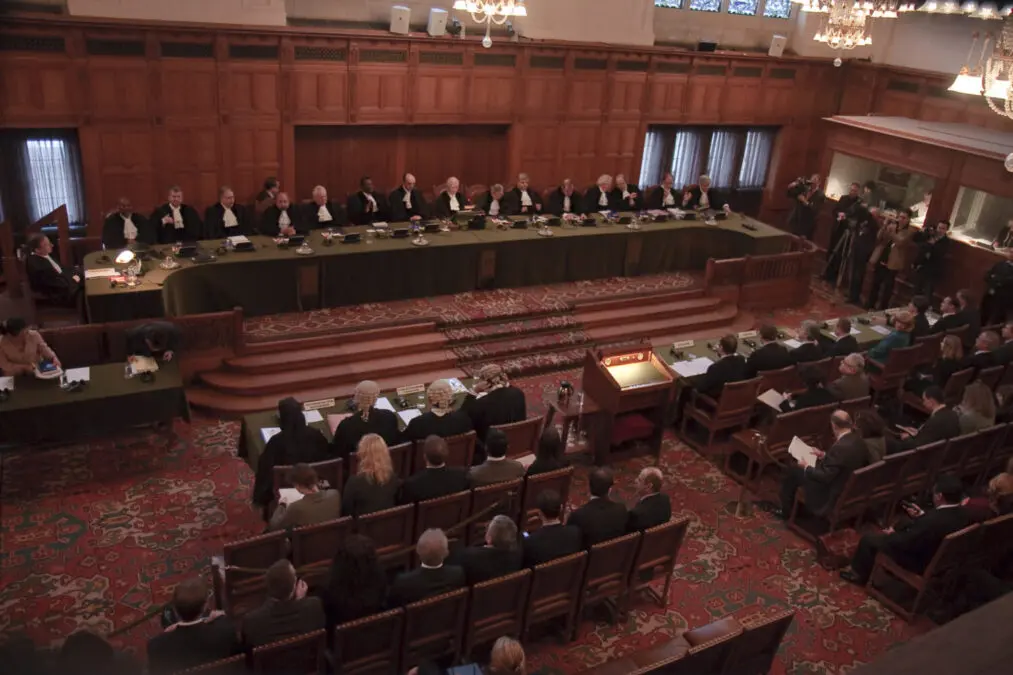Latvia files a declaration of intervention in the proceedings under Article 63 of the Statute
THE HAGUE, 22 July 2022. Genocide – On 21 July 2022, the Republic of Latvia, invoking Article 63 of the Statute of the Court, filed in the Registry of the Court a declaration of intervention in the case concerning Allegations of Genocide under the Convention on the Prevention and Punishment of the Crime of Genocide (Ukraine v. Russian Federation).
Pursuant to Article 63 of the Statute, whenever the construction of a convention to which States other than those concerned in the case are parties is in question, each of these States has the right to intervene in the proceedings. In this case, the construction given by the judgment of the Court will be equally binding upon them.
To avail itself of the right of intervention conferred by Article 63 of the Statute, Latvia relies on its status as a party to the Convention on the Prevention and Punishment of the Crime of Genocide (the “Genocide Convention”). It states that “[a]s a Party to the Genocide Convention, Latvia has a direct interest in the construction that might be placed upon that treaty in the Court’s decision in the [proceedings”, indicating that it “wishes to intervene in order to make submissions on [the] construction of the Genocide Convention on issues relating to merits as well as jurisdiction”.
In accordance with Article 83 of the Rules of Court, Ukraine and the Russian Federation have been invited to furnish written observations on Latvia’s declaration of intervention.
Latvia’s declaration of intervention will soon be available on the Court’s website.
History of the proceedings
The history of the proceedings can be found in press releases Nos. 2022/4, 2022/6, 2022/7 and 2022/11, available on the Court’s website.
Note. The Court’s press releases are prepared by its Registry for information purposes only and do not constitute official documents.
The International Court of Justice (ICJ) is the principal judicial organ of the United Nations. It was established by the United Nations Charter in June 1945 and began its activities in April 1946. The Court is composed of 15 judges elected for a nine-year term by the General Assembly and the Security Council of the United Nations. The seat of the Court is at the Peace Palace in The Hague (Netherlands). The Court has a twofold role. first, to settle, in accordance with international law, through judgments which have binding force and are without appeal for the parties concerned, legal disputes submitted to it by States; and, second, to give advisory opinions on legal questions referred to it by duly authorized United Nations organs and agencies of the system.







